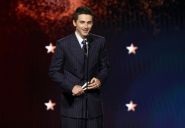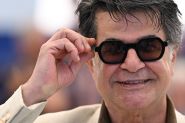
Elia Koussa navigates the challenges of musical decadence, striving to maintain some artistic integrity. With his ensemble, Le Rossignol, he aspires to elevate music to new heights at their concert on July 19 at Zico House.
Music is in sharp decline. This fact cannot be emphasized enough. The shift in musical taste, both among the public and the composers – who seem increasingly inclined towards the easy and the trivial – alongside the scarcity of patrons, presents a significant challenge to the flourishing of high-level musical creation. This decline is further exacerbated by the effects of globalization, which often promote detrimental values and erode the aesthetic standards developed over centuries. In Lebanon, the current socio-political crisis and the resulting widespread disintegration further hinder the recognition of genuine musical talents. Yet, the Land of the Cedars is brimming with authentic composers and true artists, but they are overshadowed by a domineering "music industry."
Elia Koussa is one of these overlooked talents. On Friday, July 19, at 8:30 PM at Ziko House, he will perform with his ensemble Le Rossignol in a concert titled Whisper of a Folk's Memory. The concert pays tribute to several Lebanese composers, including Zaki Nassif, Elie Shoueiri, Melhem Barakat, Sabah, Bassam Saba and Walid Gholmieh.
"Our concert was initially scheduled as part of the events celebrating the city as the cultural capital of the Arab world," Elia Koussa tells This is Beirut. However, the Lebanese ensemble was forced to cancel their concert two days before it was to take place for reasons that were unclear at the time. "It was truly a shame not to be able to share this music with the audience, especially since it pays tribute to Lebanese artists appreciated by everyone." He clarifies with frustration that “this cancellation stemmed from organizational issues beyond our control," referring to the issue between caretaker Minister of Culture Mohammad Mortada and interim Director of the National Conservatory, Hiba al-Kawas. However, the musicians were determined to go on. Koussa, a graduate in musical composition from the "Felix Mendelssohn Bartholdy" University of Music in Leipzig, continues, "Despite these setbacks, we were committed to presenting our program, given the hard work the musicians had already put in, and the entire month I had dedicated to composing the musical arrangements."
During rehearsals, the septet's sound is rich and flowing, allowing beautiful individual expressions to emerge through nuanced playing. At the piano, Elia Koussa delicately outlines the compositions, and boldly explores harmonies while allowing counterpoints to unfold freely. “I wanted to maintain many aspects of the music in their original form, imbued with nostalgia and simplicity,” he explains. “Thus, the melody, formal structure, dynamics, rhythm, and even tempos were largely preserved. My main challenge was to work on harmony, in such a way as to respect each piece's essence without compromising its character." He draws on his experience as both a composer and a theorist. Each musical phrase is meticulously crafted and imbued with a cantabile that revives an entire nostalgic world, steeped in the colors of Lebanon. In these arrangements, even the voice becomes an instrument: Gabriella Najem and Wassim Darwish lead their vocal lines with poetic grace and rich timbre.
"I also benefited from my background in European classical music. For instance, when arranging Frachi w Zahra (A Butterfly and a Flower) by Zaki Nassif, I couldn't help but reflect on Schubert's Moment Musical in F minor. This allowed me to create countless connections in my arrangements,” Koussa confides. Therefore, his music transcends the commercial dimension, and is marked by deep introspection while maintaining an authentic character.
For the first time, this musical journey pushed him to confront his memories and emotions in a crude way. "It has made me acutely aware of many previously unknown aspects within music and within myself, prompting a reevaluation of simplicity and nostalgia as foundational elements in my music, following a phase of high intellectual complexity in my art," notes the composer, who has received multiple international accolades, including a win at the Weimarer Frühjahrstage competition and the Bärenreiter Prize in Germany in 2009.
As for the current state of popular music in Lebanon, Koussa doesn’t hold back in sharing his thoughts on the matter. "Today's so-called composers disregard the concept of 'truth.' They resort to instincts, rhythms, melodies and cheap emotions that generate financial gain. Nowadays, true composers are hard to find, as our country's leading institutions are not a bit interested,” he criticizes. Koussa concludes by pointing out the core issue: “Anyone with authority and money feels entitled to pass judgment, be it positive or negative, on music they neither understand nor have expertise in.” The message is clear. See you on July 19 at 8:30 PM at Zico House.
Music is in sharp decline. This fact cannot be emphasized enough. The shift in musical taste, both among the public and the composers – who seem increasingly inclined towards the easy and the trivial – alongside the scarcity of patrons, presents a significant challenge to the flourishing of high-level musical creation. This decline is further exacerbated by the effects of globalization, which often promote detrimental values and erode the aesthetic standards developed over centuries. In Lebanon, the current socio-political crisis and the resulting widespread disintegration further hinder the recognition of genuine musical talents. Yet, the Land of the Cedars is brimming with authentic composers and true artists, but they are overshadowed by a domineering "music industry."
Elia Koussa is one of these overlooked talents. On Friday, July 19, at 8:30 PM at Ziko House, he will perform with his ensemble Le Rossignol in a concert titled Whisper of a Folk's Memory. The concert pays tribute to several Lebanese composers, including Zaki Nassif, Elie Shoueiri, Melhem Barakat, Sabah, Bassam Saba and Walid Gholmieh.
Organization issues
"Our concert was initially scheduled as part of the events celebrating the city as the cultural capital of the Arab world," Elia Koussa tells This is Beirut. However, the Lebanese ensemble was forced to cancel their concert two days before it was to take place for reasons that were unclear at the time. "It was truly a shame not to be able to share this music with the audience, especially since it pays tribute to Lebanese artists appreciated by everyone." He clarifies with frustration that “this cancellation stemmed from organizational issues beyond our control," referring to the issue between caretaker Minister of Culture Mohammad Mortada and interim Director of the National Conservatory, Hiba al-Kawas. However, the musicians were determined to go on. Koussa, a graduate in musical composition from the "Felix Mendelssohn Bartholdy" University of Music in Leipzig, continues, "Despite these setbacks, we were committed to presenting our program, given the hard work the musicians had already put in, and the entire month I had dedicated to composing the musical arrangements."
Nostalgic world
During rehearsals, the septet's sound is rich and flowing, allowing beautiful individual expressions to emerge through nuanced playing. At the piano, Elia Koussa delicately outlines the compositions, and boldly explores harmonies while allowing counterpoints to unfold freely. “I wanted to maintain many aspects of the music in their original form, imbued with nostalgia and simplicity,” he explains. “Thus, the melody, formal structure, dynamics, rhythm, and even tempos were largely preserved. My main challenge was to work on harmony, in such a way as to respect each piece's essence without compromising its character." He draws on his experience as both a composer and a theorist. Each musical phrase is meticulously crafted and imbued with a cantabile that revives an entire nostalgic world, steeped in the colors of Lebanon. In these arrangements, even the voice becomes an instrument: Gabriella Najem and Wassim Darwish lead their vocal lines with poetic grace and rich timbre.
Memory and emotions
"I also benefited from my background in European classical music. For instance, when arranging Frachi w Zahra (A Butterfly and a Flower) by Zaki Nassif, I couldn't help but reflect on Schubert's Moment Musical in F minor. This allowed me to create countless connections in my arrangements,” Koussa confides. Therefore, his music transcends the commercial dimension, and is marked by deep introspection while maintaining an authentic character.
For the first time, this musical journey pushed him to confront his memories and emotions in a crude way. "It has made me acutely aware of many previously unknown aspects within music and within myself, prompting a reevaluation of simplicity and nostalgia as foundational elements in my music, following a phase of high intellectual complexity in my art," notes the composer, who has received multiple international accolades, including a win at the Weimarer Frühjahrstage competition and the Bärenreiter Prize in Germany in 2009.
As for the current state of popular music in Lebanon, Koussa doesn’t hold back in sharing his thoughts on the matter. "Today's so-called composers disregard the concept of 'truth.' They resort to instincts, rhythms, melodies and cheap emotions that generate financial gain. Nowadays, true composers are hard to find, as our country's leading institutions are not a bit interested,” he criticizes. Koussa concludes by pointing out the core issue: “Anyone with authority and money feels entitled to pass judgment, be it positive or negative, on music they neither understand nor have expertise in.” The message is clear. See you on July 19 at 8:30 PM at Zico House.
Read more




Comments